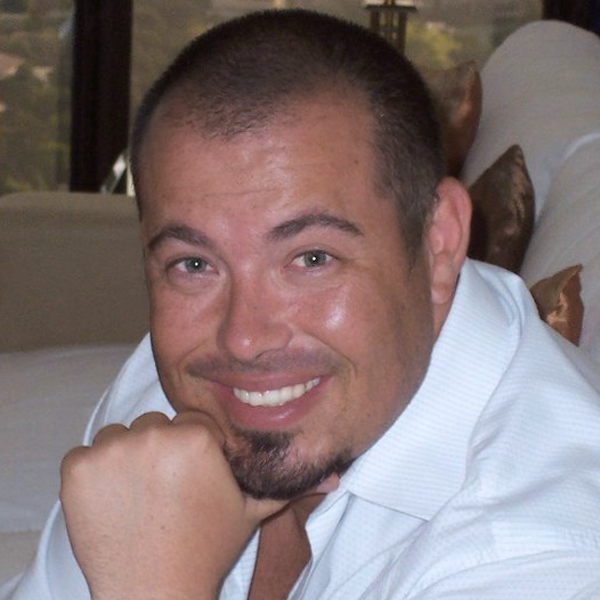Eric Allison is a healthcare staffing expert with more than thirty years of experience in the field of Staffing & Recruiting. He is also an advisor for corporate Mergers & Acquisitions and a serial entrepreneur.
Below is the second portion of an interview conducted with healthcare staffing expert, Eric Allison. For those interested in reading Eric’s first half of the interview, please click here: https://community.thriveglobal.com/stories/a-discussion-with-eric-allison-about-healthcare-staffing-part-one/
How does medical staffing differ from traditional staffing?
Medical staffing companies specialize in providing healthcare professionals such as physicians, nurses, medical technicians, and other healthcare providers, to healthcare organizations, such as hospitals or nursing home facilities. There is a wide range of niche industries that traditional staffing firms cater to, but do not require to be Joint Commission Certified like healthcare staffing firms.
What trends are you noticing arising within the staffing industry?
I am seeing trends arising in two main areas:
Staffing firms diversifying into non-staffing areas
The primary sources of revenue for staffing firms are the provision of direct hire and temporary help. Modern staffing firms have much more diverse revenue streams, some parts of which are growing faster than their core services.
Non-core services such as payrolling, VMS, consultancy, and other workforce solutions are also being offered by some firms.
Remote recruitment
Before COVID-19, a number of agencies operated remotely, but remote adoption wasn’t common in the industry. The pandemic necessitated remote recruiting and the use of remote technology: staffing professionals have adopted (or increased their use) of video interviewing or video conferencing solutions since the start of the crisis.
What factors do you use to determine whether the medical staff will be a good fit?
When selecting candidates, we always look for healthcare providers who are:
Great communicators and highly proficient in both speaking and listening.
Emotional stability, since healthcare can be a stressful profession.
Flexibility is another sign that a potential employee can deal with stress. Healthcare professionals are often subject to unusual hours and changing responsibilities, so you need to look for candidates who can work in an unstructured environment.
It’s important for potential candidates to be empathetic and compassionate. Comfort is an important part of patient care, and you want professionals who can provide that.
Though much of the healthcare job is emotional and logical, there’s a physical aspect that should be considered. A good healthcare professional has to be able to stand for long periods of time and lift heavy objects (or people, in the case of patient transfers).
Can you please share tips for aspiring entrepreneurs who want to put up their own staffing firm?
If you ever envision self-employment, being your own boss, and helping people achieve their career goals then making the decision to build a staffing firm might be a great choice for you. It would be beneficial if you have a background in sales/business development and understand how companies hire people to achieve their business objectives.
Businesses, no matter how big or small, require full dedication and commitment. So before deciding to start your own staffing agency, ask yourself a few things: Am I ready for this? Am I willing to put all my time and energy into this business? Am I willing to take the risk? Do I see myself doing this for years? If all your answers are yes, then you may be bound to be an entrepreneur. Remember, at the end of the day, you are the only person who will care for your business the most.
What do you think the future of healthcare staffing will look like?
The healthcare industry is facing strained talent resources in the wake of the coronavirus pandemic. To ensure the healthcare industry’s successful future, it requires an improved, technology-driven, and collaborative talent management approach. HR leaders require increased aid to improve healthcare staffing efforts in terms of hiring, retention, and engagement. That means they need adaptable and flexible workforce strategies that can successfully deliver staffing needs in an ever-changing landscape.
The healthcare industry and those who make up the workforce are significant members of the communities in which we live, work, and play. As healthcare professionals continue to work hard every day to safeguard our future, organizations need to put an equal amount of care into talent management, recruitment, and retention of staff. Cross-industry and technologically advanced partnerships are the way forward to make real change in healthcare staffing.
What is next for Eric Allison?
As I progress my career in the staffing and recruitment industry, I plan to continue utilizing my knowledge and expertise in the same field through a company called Staffing Venture Capital (SVC). SVC is an investment firm and business accelerator focused on helping companies in the staffing and recruitment industry to unlock opportunities and realize shared synergies through industry consolidation and roll-up model. The company is dedicated to connecting staffing and recruitment agencies with the next phase of its growth trajectory. This, I will be doing while taking on my role as the Director for Corporate Development for Premier Healthcare Professionals (PHP), a healthcare staffing company based in Cumming, Georgia, providing quality travel nurses to different states in the country. The business direction for PHP is to acquire more small staffing agencies in order to serve more markets and increase the overall revenue for the company.


